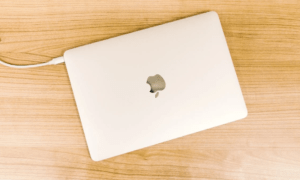
In today’s digital world, using a Virtual Private Network (VPN) is almost essential for anyone who wants to access geo-restricted content and ensure their online privacy. This is especially true for Amazon Prime users, who can benefit from a VPN to unlock an extensive catalog that can vary for different regions.
However, using a VPN with Amazon Prime can sometimes be tricky. This guide will walk you through the best practices for using a VPN with Amazon Prime and provide solutions to common issues you might encounter.
Why Use a VPN for Amazon Prime?
Here are the 3 primary reasons to use the best Amazon Prime :
1. Accessing Geo-Restricted Content
Amazon Prime offers different content libraries based on your geographical location. Connecting to the VPN enables you to bypass these geo-limitations. When you connect to a VPN server, your original IP address gets masked and this tricks Amazon Prime Video into believing that you’re based where the server is. This way, you can enjoy a broader selection of shows and movies.
2. Enhancing Security and Privacy
A VPN encrypts your internet traffic, protecting your personal information from hackers and surveillance. This is primarily important when you connect to a public WiFi network, where your data is more vulnerable to cyberattacks.
3. Avoiding ISP Throttling
ISPs often throttle bandwidth during streaming activities. By using the best Amazon Prime VPN, you can conceal your IP from your ISP, which helps maintain consistent streaming speeds without unnecessary interruptions.
Choosing the Best VPN for Amazon Prime
While the market is flooded with various options, here are 4 factors other than a free VPN trial to always consider when choosing a VPN:
1. Speed and Performance
When choosing a VPN for Amazon Prime, speed is crucial. Look for VPNs known for their high-speed servers to ensure a seamless streaming experience. VPNs like ExpressVPN and NordVPN are popular choices for their reliable and fast connections.
2. Server Locations
You must always check to see if the VPN offers an extensive server list. This enables you to have a range of options to choose from. If a specific server doesn’t make the cut for you, another option has to be there.
3. Security Features
Other than a free VPN trial, you must check to see the security features it offers. Such as encryption protocols, a strict no-logs policy, and various others. These features ensure your data remains protected even if the VPN connection drops.
4. Customer Support
24/7 customer support is beneficial for resolving any issues quickly. Check if the VPN provider offers reliable customer support through live chat or email.
Setting Up Your VPN for Amazon Prime
Using a VPN is always a breeze. Here’s how you can set up the VPN for Amazon Prime on your device:
1. Installing the VPN Software
First, choose a VPN provider and subscribe to their service. Download and install the VPN software on your device. Most VPNs support multiple platforms, including Windows, macOS, iOS, Android, and smart TVs.
2. Configuring the VPN Settings
Once installed, launch the best Amazon Prime app on your device and log in. You can now enable features like the kill switch and switch to a VPN protocol that best suits your needs (e.g., OpenVPN, IKEv2).
3. Connecting to the Right Server
To access Amazon Prime content from a specific country, you must opt for a specific VPN server, such as the US.
Common Issues and Troubleshooting Steps
1. VPN Not Connecting
Sometimes, the VPN might not connect due to various reasons. Here’s how to troubleshoot:
- Test the Internet Speed: Ensure your internet connection is stable.
- Restart Your VPN Software: Close and reopen the VPN app.
- Change VPN Protocols: Switch between different VPN protocols.
- Contact Customer Support: If the problem hasn’t resolved yet, it’s best to reach out to your VPN provider’s support team.
2. Slow Streaming Speeds
If you experience slow streaming speeds, try these solutions:
- Connect to a Different Server: Sometimes, servers can be overcrowded. Switching to a different server might help.
- Use Wired Connection: A wired connection is generally more stable than Wi-Fi.
- Close Background Applications: Close any unnecessary applications running in the background.
- Upgrade Your Internet Plan: If possible, upgrade to a higher-speed internet plan.
3. Amazon Prime Blocking VPN
Amazon Prime may block certain VPN servers. To resolve this, you can:
- Switch Servers Regularly: Change servers to find one that works.
- Clear Browser Cookies: Clear your cookies and cache to prevent detection.
- Use Obfuscated Servers: Some VPNs offer obfuscated servers that can bypass VPN blocks.
- Contact VPN Support for Recommendations: Reach out to your VPN provider for server recommendations that work with Amazon Prime.
4. Buffering and Playback Issues
Buffering can ruin your streaming experience. Try these fixes:
- Lower Streaming Quality: Reduce the streaming quality to lessen the load on your bandwidth.
- Use VPN’s Split Tunneling: Enable split tunneling to direct only Amazon Prime traffic through the VPN.
- Update VPN and Streaming App: Ensure both the VPN and Amazon Prime app are up to date.
- Check for ISP Throttling: Some ISPs throttle streaming traffic. If this is the case, consider switching to a different ISP.
Advanced Troubleshooting Tips
While the previous section focused on the common errors and their troubleshooting steps, here are the 4 advanced troubleshooting tips:
1. Check for Software Conflicts
Ensure no other software (like antivirus or firewall) is conflicting with your VPN even during the free VPN trial. Disable them temporarily to see if it resolves the issue.
2. Verify Account Status with VPN Provider
Make sure your VPN subscription is active, and there are no account-related issues.
3. Adjust VPN Encryption Settings
Sometimes, lowering the encryption level can improve performance without significantly compromising security.
4. Use a Dedicated IP Address
Some VPN providers offer dedicated IP addresses, which can be more reliable for streaming services like Amazon Prime.
Conclusion
Using a VPN with Amazon Prime opens up a world of content and enhances your online privacy. By choosing the right VPN, you can enjoy a seamless streaming experience. Remember, a good VPN not only unlocks content but also protects your browsing data and digital identity. You can always check all its offerings during the free VPN trial.




